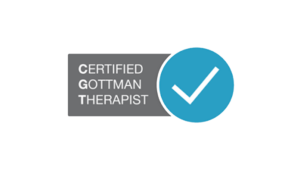Anxiety is a common mental health condition that affects millions of people worldwide. While occasional anxiety is a normal part of life, chronic anxiety can significantly impact daily functioning and overall well-being. In this blog post, we will explore the common symptoms of anxiety and various treatment options available, including individual psychotherapy.
Recognizing the Symptoms of Anxiety
Anxiety can manifest in many ways, both physically and emotionally. Understanding these symptoms is crucial for identifying anxiety and seeking appropriate help. Common symptoms include:
Physical Symptoms:
- Increased Heart Rate: A racing heart or palpitations.
- Sweating: Excessive sweating, often in response to stressful situations.
- Trembling or Shaking: Uncontrollable shaking or trembling.
- Shortness of Breath: Difficulty breathing or a feeling of being unable to catch your breath.
- Fatigue: Persistent tiredness or exhaustion, even after adequate rest.
- Sleep Disturbances: Trouble falling or staying asleep, leading to insomnia.
Emotional Symptoms:
- Persistent Worry: Excessive worrying about everyday situations.
- Restlessness: Feeling on edge or unable to relax.
- Irritability: Becoming easily annoyed or frustrated.
- Difficulty Concentrating: Trouble focusing on tasks or experiencing a blank mind.
- Avoidance: Avoiding situations or places that trigger anxiety.
Recognizing these symptoms can help individuals understand when anxiety is becoming a problem and when it might be time to seek professional help.
The Impact of Anxiety on Daily Life
Anxiety can affect various aspects of daily life, including work, relationships, and overall quality of life. People with anxiety might find it challenging to perform routine tasks, engage in social activities, or maintain healthy relationships. Understanding the impact of anxiety can motivate individuals to seek treatment and support.
There are several effective treatment options for managing anxiety. These treatments can help reduce symptoms and improve overall well-being. Here are some of the most common and effective approaches:
Individual Psychotherapy
Individual psychotherapy is one of the most effective treatments for anxiety. It involves working one-on-one with a trained therapist to explore the root causes of anxiety and develop coping strategies. Types of individual psychotherapy that are particularly effective for anxiety include:
- Cognitive Behavioral Therapy (CBT): Focuses on identifying and changing negative thought patterns and behaviors.
- Exposure Therapy: Gradually exposes individuals to anxiety-provoking situations in a controlled manner to reduce fear.
- Mindfulness-Based Therapy: Incorporates mindfulness practices to help individuals stay present and reduce anxiety.
Medication
In some cases, medication may be prescribed to help manage anxiety symptoms. Common medications include:
- Selective Serotonin Reuptake Inhibitors (SSRIs): Often used as a first-line treatment for anxiety.
- Benzodiazepines: Provide rapid relief of acute anxiety symptoms but are typically used short-term due to the risk of dependency.
- Beta-Blockers: Help manage physical symptoms of anxiety, such as rapid heart rate.
Lifestyle Changes
Making certain lifestyle changes can also significantly reduce anxiety symptoms. These include:
- Regular Exercise: Physical activity can help reduce stress and improve mood.
- Healthy Diet: Eating a balanced diet can impact overall mental health.
- Adequate Sleep: Ensuring enough rest is crucial for managing anxiety.
- Stress Management Techniques: Practices like yoga, meditation, and deep breathing can help manage stress.
Support Groups
Joining a support group can provide a sense of community and understanding. Sharing experiences with others who face similar challenges can reduce feelings of isolation and provide valuable coping strategies.
In conclusion, understanding anxiety and recognizing its symptoms are the first steps toward seeking help and improving quality of life. There are various effective treatment options available, including individual psychotherapy, medication, lifestyle changes, and support groups. If you or someone you know is struggling with anxiety, remember that help is available, and reaching out is a crucial step toward healing.
At Kingston & Co Counseling, we are committed to supporting you through your mental health journey. For more information on our services or to schedule an appointment, please contact us. We are here to help you every step of the way.







